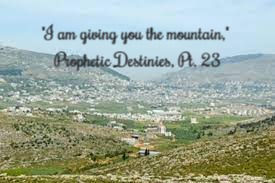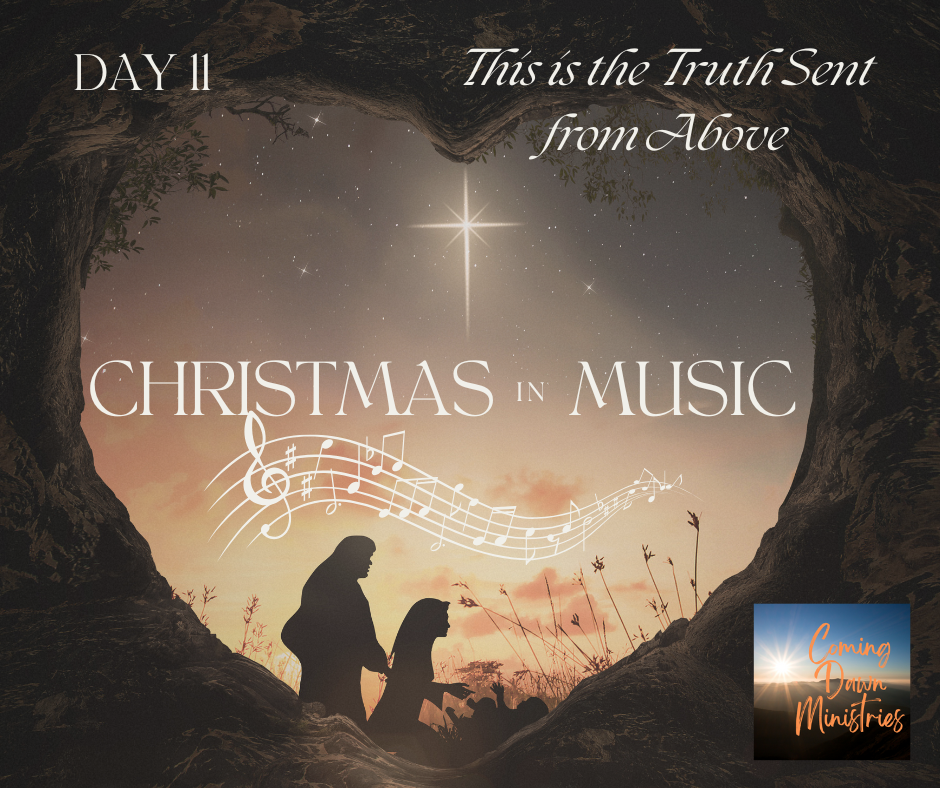God's Mountain for You, Prophetic Destinies, Pt. 23
- Renée Coventry
- Apr 23, 2021
- 5 min read
In the seventeen years Jacob has lived in Egypt, he has acquired land, the clan has expanded, and they have become wealthy. God has indeed blessed Jacob, and before he dies, he makes one request of Joseph – that he be buried in Canaan with his fathers. His resting place is not to be where he ended up but is home in the promised land (Gen. 47:27-31).
As Jacob contemplates his coming death, Joseph brings his two sons, Ephraim and Manasseh, to see Jacob. During their visit, Jacob recounts for the boys God's blessing and how He appeared to Jacob at Luz. Notice, Jacob refers to Bethel (his name for it) as Luz, indicating that this is a multigenerational promise originally given to Abraham. This should teach us the importance of passing down the stories of God's faithfulness to the next generation, reminding them of the sacred bond between God and our household. This is in direct opposition to what we see in today's culture, where every person is for themselves and where we have made truth relative to the individual instead of teaching the objective truth of Scripture. While we do have to make a personal decision to live for Christ, our faith is elevated by the constant recounting to our children of God's work in our lives.
During this conversation, Jacob adopts Ephraim and Manasseh, Joseph's two sons, as his own. Jacob knew of the animosity that Joseph's brothers had carried toward him, and Jacob did not want that directed toward Joseph's two boys. After all, having been born in Egypt, the brothers could reject Joseph's sons at his death as Egyptians rather than Israelites. By adopting the two young men, Jacob ensures that Joseph's descendants will be part of what God is doing in his family. It also ensured that the two boys, though reared in Egypt, would not forget that they were a part of the promise. Isn't that what God has done for us? Adopted us into His family so that we could become recipients of the blessings of Abraham? (Gal. 3:29)
Notice that when Jacob blesses Ephraim and Manasseh, he blesses Ephraim first. Most rabbis agree that the reason for his doing so was because of the original contention between Jacob and Esau and which had continued between Jacob's twelve sons. By putting Ephraim first, Jacob was declaring that there would be no rivalry or deception between these two boys but unity regarding God's plan for the family unit. Whereas the previous generations had bickered and fought, the next generation would usher in peace because there had been no partiality between grandfather/father/sons. This is one of our mandates before the Lord: to speak peace to the next generations by resolving issues. That's why we must deal with problems, whether personal or political. Generations after us need to walk in peace with one another so that they, too, can establish a place for the remnant of God.
I want you to reflect that Jacob has blessed the grandsons, but it is Israel that is passing on a separate blessing to Joseph. Aren't they the same person? Physically, yes, but whenever Israel speaks, it has a prophetic connotation to it. In Genesis 48:22, Israel states,
"Over and above what I am giving your brothers, I am giving you the one mountain slope that I took from the hand of the Amorites with my sword and bow."
This is crucial. For centuries scholars and rabbis have contemplated this particular passage coming up with many theories. I will present one of those options because it reflects a principle we repeatedly see throughout Scripture.[1] In Genesis 33, Jacob purchased a field near the land of Shechem, which was his investment in God's promise to give him the land. However, immediately after in Genesis 34, Dinah is defiled, and her brothers conquer the entire city, enslaving the women and children. Several scholars believe that Jacob first purchased and then, because it was his sons who conquered despite the shame it brought upon him, the victory was attributed to Jacob as head of the household. This seems consistent with Genesis 35:5 that when Jacob set out from Shechem, a "terror from God came over the cities around them."
Jacob first invested in the land. He put his assets into what God has promised. However, he had to war with the world around him to protect his children. This is what we do in spiritual warfare; we invest in prayer and then fight principalities and powers that surround our promised land. When we seek to establish a place for the remnant, we must both invest and war. Jacob may not have stayed in the place where he warred, but he certainly had not forgotten it belonged to him. He gave Joseph the victories of his warfare!
What about you? Are there victories that you want to pass onto your children or maybe obtain from your parents? I certainly desire my parents to bless me with their successes and the ground they have taken from the enemy because I can pass it down to my children and their children. We see this when the children of Israel leave Egypt. One of their first stops is Shechem (Joshua 24:34), where they bury Joseph, and the tribe of Ephraim inherits it. It was near the place God originally covenanted with Abraham in Genesis 12:1-7, and it is the place Jacob sent Joseph to check on his brothers when they sold him into slavery (Genesis 37:12-14). Interestingly Israel blessed Joseph with the very land in which he was enslaved. It is also thought that Shechem is the ancient name of the city where Jacob's well is located.
If this is the case, this is the very place where Jesus encountered the woman at the well and revealed His identity as Messiah in John 4. Joseph, a shadow of Christ, was bequeathed the land on which our Savior would reveal Himself as the Living Water! He went to the very place Jacob purchased and then conquered to declare His intention of purchasing our salvation with His blood and His purpose of putting to the sword all that would come against His children. How beautiful and stunning! Only God could organize and bring about circumstances so that every jot would be fulfilled, and He is doing so in your life and the lives of your family, as well!
Let's Pray:
Father, You are remarkable! Your plans are multigenerational, and I thank You that every promise You gave to Abraham is to my children and me. Thank You that You have given me the mountain of Your victory in Calvary and that as I share in Your suffering, I also share in Your resurrection power! Help me to war successfully to maintain that which you purchased and to establish peace between generations in my time for Your glory. Amen.




Comments